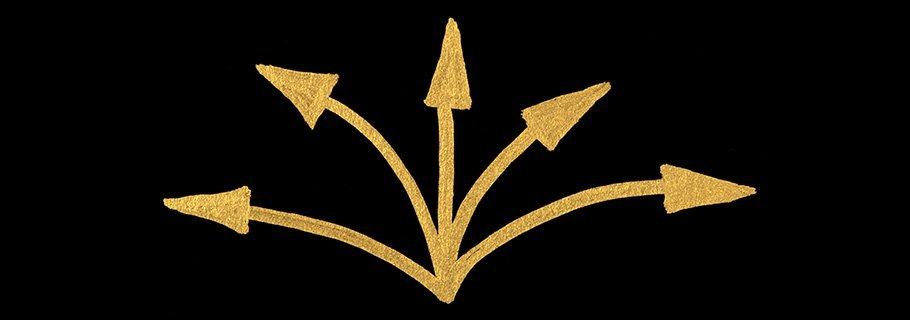Making decisions is one of the most difficult things we do. If it is that hard to choose between the mint chocolate chip and the rocky road, how much more do we agonize over this church or that church, this school or that school, this job or that job, this person or that person? We pray, we sweat, we weep, we read, we toss, we turn.
Why this fear? Why this agony? Why these sleepless nights? It is the uncertainty of it, I’m sure. It is the uncertainty of where our choices may lead.
When it comes to making decisions, we have this desire to protect ourselves from the wrong decisions or, more properly, from the consequences of the wrong decisions. I don’t want to make an educational choice that imperils my child’s soul; I don’t want to make a dating choice that leads me to marital misery; I don’t want to make a vocational choice that leads me to unemployment. I don’t…I don’t want to be unhappy, and want to ensure that my choices don’t lead me there.
What I really want when I make a decision is to see the future.
What I really want when I make a decision is to see the future. I don’t only want to see the options before me, but the result of each of those options. If I could gaze into the future and see my child as a growing, thriving, Christ-honoring adult, it would make choosing this school that much easier. If I could gaze into the future and see myself hand-in-hand with that woman sixty years from now, I would know that she will make a fine choice for a wife. If I could only see the end, I would know. If only I had access to the future.
But the thing we want is a thing God does not give us. He is far too wise for that, and does not give us that view of the finish line, that sneak peak of the future. He could, of course. After all, he is the one who declares, “the end from the beginning and from ancient times things not yet done, saying, ‘My counsel shall stand, and I will accomplish all my purpose…’ (Isaiah 46:10).” As the one who declares it and will bring it to pass, he is also the one who could display it in advance. But he doesn’t.
We don’t need to know the future when we know the one who holds the future.
Instead, he does something far better: He gives us a view of himself. We don’t need to know the future when we know the one who holds the future. God does not want us to put our hope in a future outcome, but in him. We don’t ground our faith in a result, but in a Person. If we could see the future we would take our eyes off him. If we could see the future, our faith would be in the future. But when all we see is God, our trust must be in him.
God doesn’t comfort us by showing us the future, but by showing us himself. He shows himself as the all-powerful, all-knowing God who is for us, not against us. He shows himself as being far more committed to us than we are to him. He promises that he will never leave us nor forsake us, that he will work all things for good, that he will hold us firm to the end. He guarantees that he has purposes in this world and that nothing can change or interrupt or thwart them. He assures us that he will be glorified. He says, “Don’t look at the future, look at me!”
Decisions are difficult simply because we do not trust God with the results of our decisions. Decisions are difficult only because we are prone to misplace our comfort, to find our hope in a vision of the future more than in the one who holds the future. Your confidence in making decisions is directly related to your confidence in God himself.
Image credit: Shutterstock









